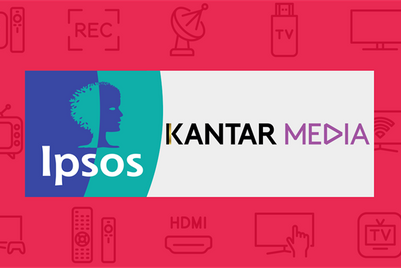The 2015 Marketers' Outlook survey debuts later this week in Campaign Asia-Pacific's February issue and on this website.
Mark Kidd, research director at Ipsos, presented key findings from the Marketer’s Outlook study, which showed that while the overall outlook of the industry had improved compared to 2014, a “cautious attitude” had deepened.
These sentiments are tied to the ongoing challenges the industry has faced on both the agency and client-side including the need to “build more integrated strategy”, “capture consumer data and derive insights from them”, “integrate mobile into a broader strategy” and “improve overall effectiveness”.
In addition, marketers feel that channel investments will need to change in 2015, with more funds allocated to “social media and mobile marketing”. Across advertising, media, digital and PR agencies, marketers think that their “agencies need to be more strategic and integrated”. The full in-depth study will be published and analysed on Campaign Asia-Pacific and PRWeek.
Campaign Asia-Pacific’s deputy editor David Blecken hosted a panel session where Rowan, who is also chair of the Marketing Society in Asia, and Groves furthered the outlook discussion. Rowan highlighted the dangers of “marketing jargon” and the illusions it can create on the job.
“I think a lot of the talk about integration and channels is rubbish,” said Rowan. “It’s what we’ve been doing forever as marketers. The channels are just changing, but it’s still about the customers and the proposition of the business. Customer behaviour is what’s driving channel changes, and we need to keep sight of that.”
Groves said he believed that the client-side “needs more training” to understand the difference between “tactics and strategy” with the latter being more long-term and far-reaching.
“Clients want strategy, but a lot of them wouldn’t know strategy if it landed on their heads,” said Groves. “It’s just an exercise in frustration. Clients say they need an agency called ‘Strategy Inc’ and then they’ll say they need a ‘strategy integration’ company.”
Both Groves and Rowan acknowledged the power of design. Groves noted the importance of “translating the organisation” into a “customer communication” rather than focusing on marketing technologies alone.
“With more efficient media, marketers are still asking for bigger budgets,” said Groves. “It’s contradictory. There’s a bit of naivety around budget, and there’s got to be better measurement and showing targets relative to budget.”
Rowan added that the most important thing is design. “When your organisation gets big it’s easy to forget that your service, product and systems still need to be easy to use and that you need to be easy to buy from.”
The same line of thought was shared in regards to mobile integration. “Becoming purely mobile can scare people in businesses that haven’t traditionally been mobile,” said Groves. “But if the move is driven by market conditions and integrated into an overall strategy then it scares people less.”
“In-house marketing”, “working with agencies”, “having room to experiment” and “having a CEO that’s up for failing” also went hand-in-hand.
However, the most crucial point to come out of the discussion came back to the fundamental nature of the agency-client relationship and its impact on success.
“It’s the worst when it’s a one way relationship,” said Rowan. “It’s best when you’re good friends with your agency and you’re both thinking a lot about each other’s business. That’s how long-term relationships are built and that what it takes to create any lasting success.”
Groves added: “The changeover of client and agency is often too rapid, and there’s not enough time for agencies to understand their client’s business,” he said. “Strategies won’t come to fruition when you’re not asking enough deeper questions or staying around for long enough.”
“Agencies are seeing their client as a ‘brief’,” said Groves. “They need to think about how to help their client’s business rather than help the next campaign.”




































.jpg&h=334&w=500&q=100&v=20250320&c=1)


.png&h=334&w=500&q=100&v=20250320&c=1)




.png&h=334&w=500&q=100&v=20250320&c=1)





.png&h=268&w=401&q=100&v=20250320&c=1)


